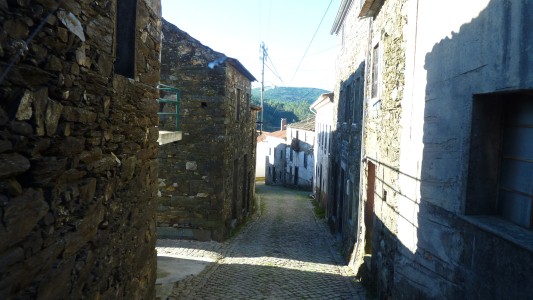
Pull in the mirrors again.
But we made it. Without help.
We haven't got the hang of navigating yet. The small truck that we overtook driving up the hill before this passed us going the other way after this.
We could have just followed the main road instead of turning off as gps said!
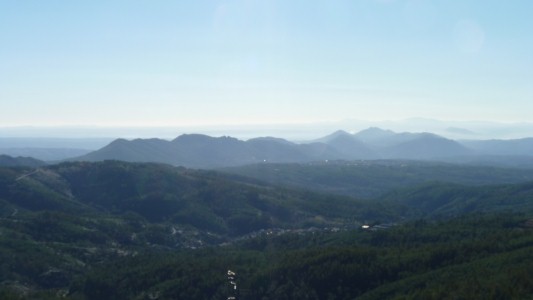
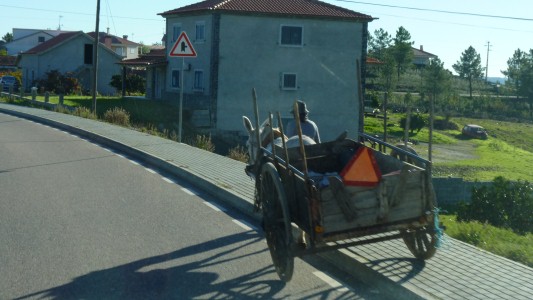
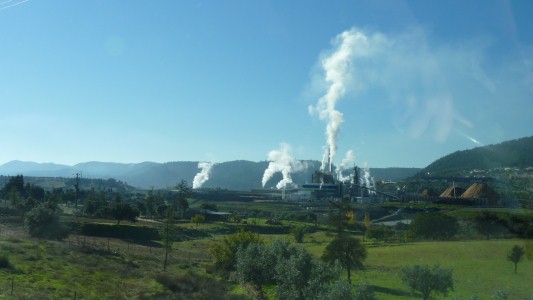
Possibly a chip or pulp mill. There were two and some other industry in Vila Pelha de Rodao.
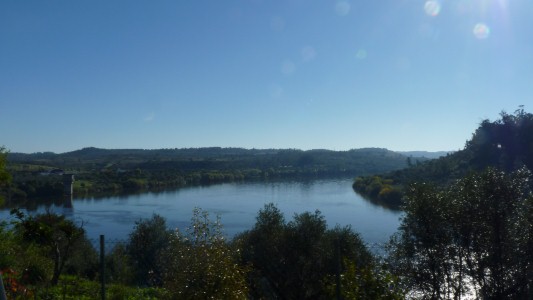
To the west it forms part of the border with Spain.
It flows through Lisbon to the sea.
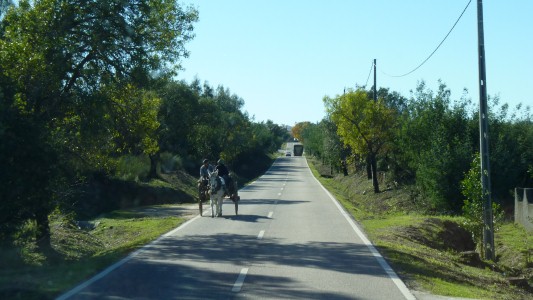
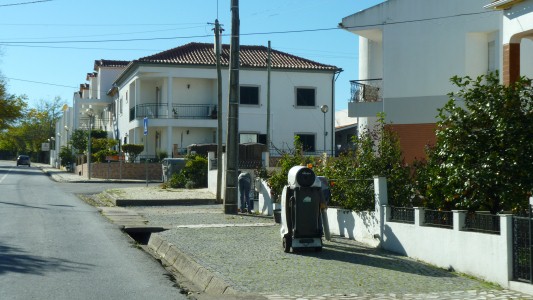
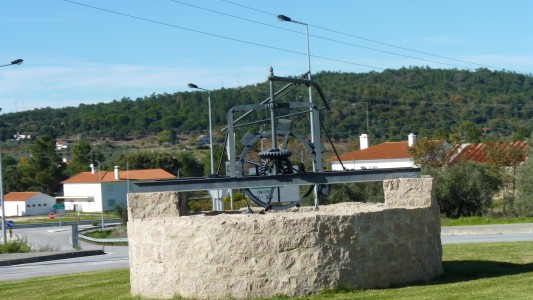
There were several, including Lidl, Pricemini and Intermarche.
It was here that the Bancomat failed to cough up any money for the debit card. Oops!
Meanwhile we spotted the steel version of a water moving wheel that we last saw the wooden version of in Western Australia. Neither are in use, this is the centre of a roundabout.
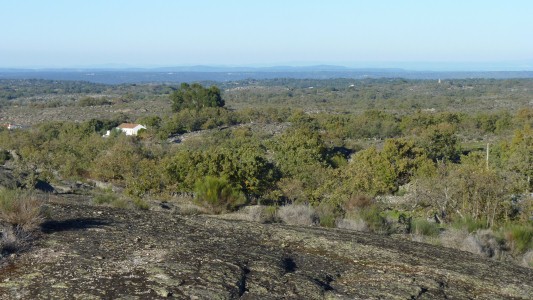
Sadly they were probably wrong. The roads became too narrow and the locals didn't know of the place.
So we camped beside the road in the natural park full of granite.
We are licking our wounds. Not only did we not find our menhir, our debit card not work so we were low on cash, the backup internet plan with travelsim didn't work to check, Ali broke a tooth on the crusty bread, the fridge turned itself to very low.
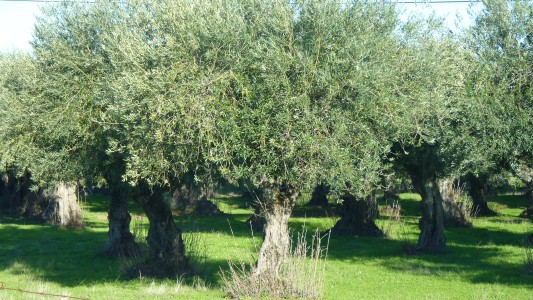
The land is noticeably drier as we move south.
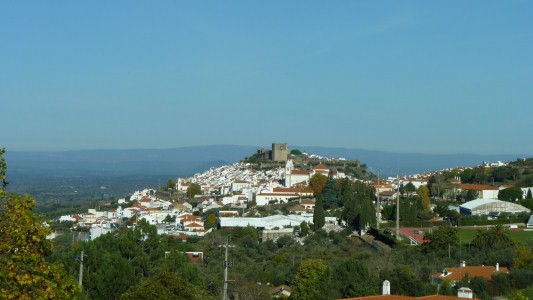
This is Castelo de Vide, but we are headed to Marvao which is on an even bigger hill.
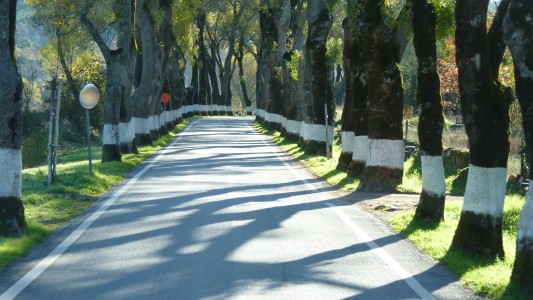
The trees curve in a bit. About the height of our roof.
The passing places were where the occasional tree had been removed.
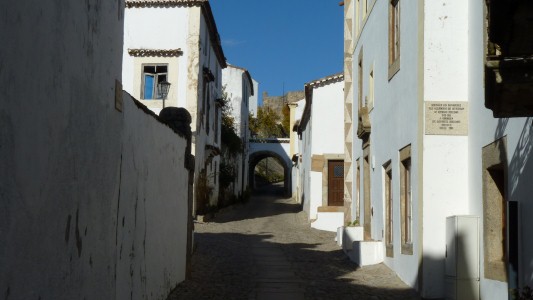
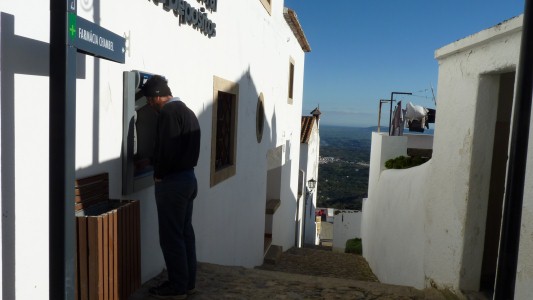
And free wifi. We sat in the tourist info office to use it as our computers wouldn't connect through the repeaters and couldn't get the truck close enough to the primary.
Banking sorted until Morocco.
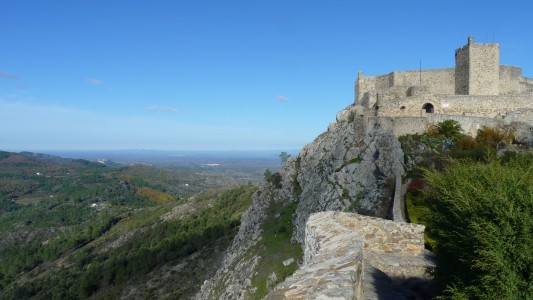
They were followed by the Greeks, Romans, Visigoths from the north then the Moors, in the 8th century, through north Africa.
Ibn Marwan was Vizier of Coimbra rebuilt the fortress and gave his name to the town.

We also see into Spain and north to the mountains we found our way through.
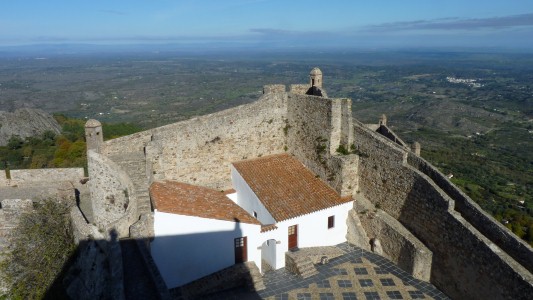
Just a few for canons to point through.
There was a bit of resistance to the Moors and they were finally pushed back to the south by the 12th century.
The Portuguese Empire followed with Henry the Navigator in the 15th century.
Spain occupied Portugal in the 16th century. The power and wealth faded.
Napoleon tried and failed (due to the Anglo-Portuguese alliance).
Then civil war, a brief period of democracy, then a military dictator from 1926 to 1968.
Portugal joined the EU in 1986.
It may be the route we've taken but it seems a better kept place than we saw briefly in 1997.
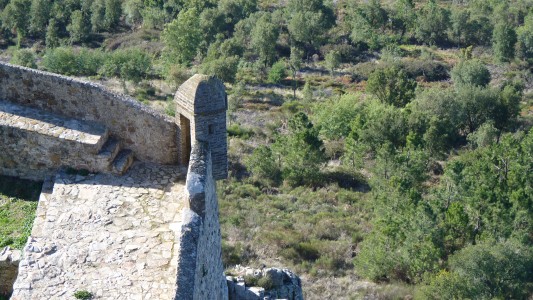
There's a precarious looking sentry box at each corner.
Certainly not the pointed moorish castellations we expected.
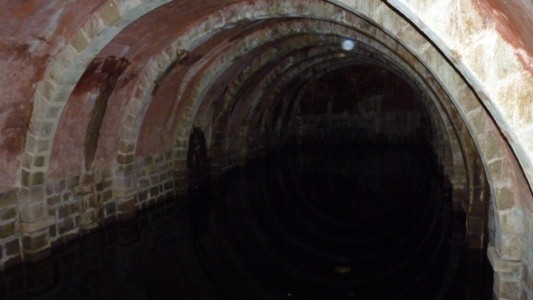
Not sure where it gets its water from or whether its still really used, but it has clear water in it.
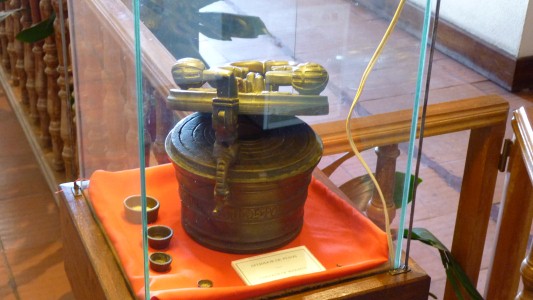
Most enjoyable mixture of everything from neolithic and other archeological stuff through to modern times.
Marvao was a significant centre. This contains a set of weights, ornate enough to be standards, presumably used for tax collection.

We camped in the Aires just below the town walls and heard the clock chiming. But never found the clock.
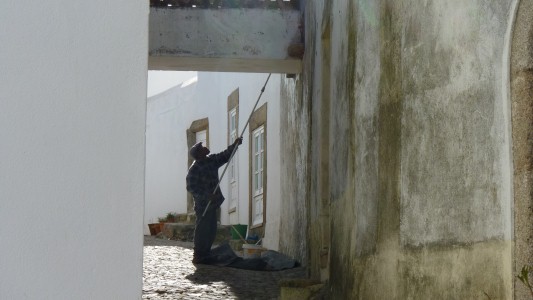
Have to keep the town tidy for Muslim and Chestnut festivals.
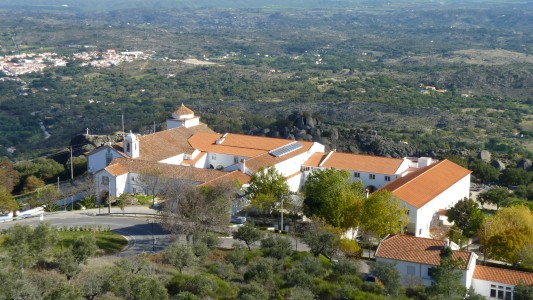
The older part of the building is about 16th century - don't be fooled, just inside the entrance are automatic glass doors.
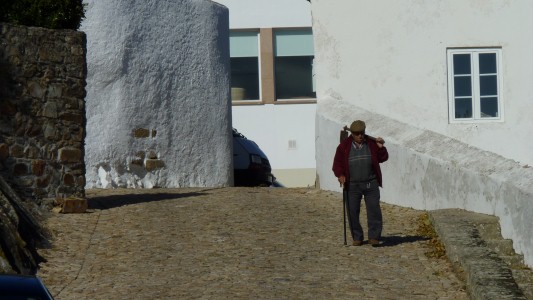
On the way to the fields with a hoe.
We're guessing the population is a few hundred.
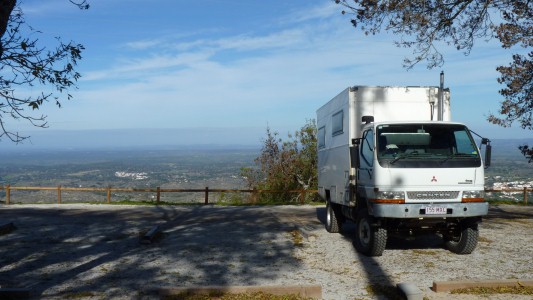
We have water, power if we needed it but don't, somewhere to empty the loo, a barbeque. Walked to the bakery for breakfast.
Still the off season, we see a few tour buses drive past but no-one else here.
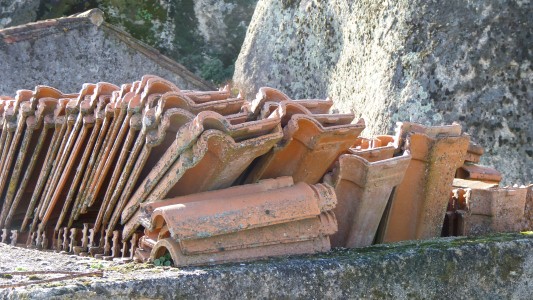
The joints are "integrated".
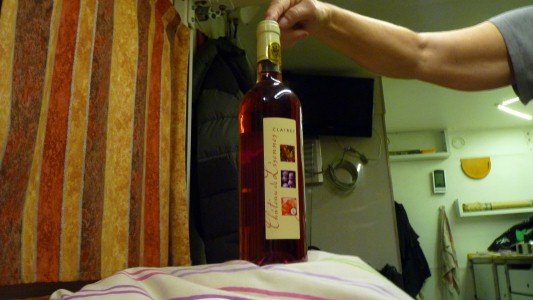
As we were leaving they gave us a bottle of wine from their village.
Clairet from Chateau de Lisennes in Bordeaux.
And very nice it was too.
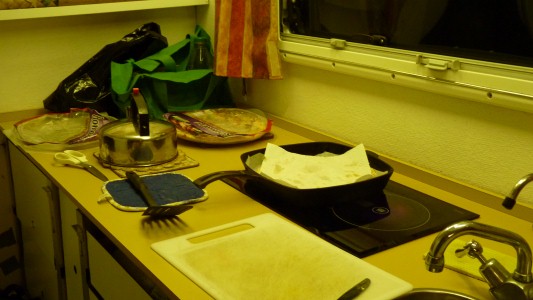
The cast iron frying pan is not quite flat but that's not surprising for something 33 years old that started life being used for cooking over fires.
Its become quite good at providing toast every morning. Though today we have fresh bread from the bakery.
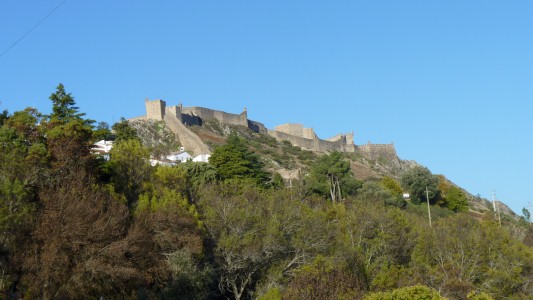
All is well with the world.
A good recovery from our minor mishaps.
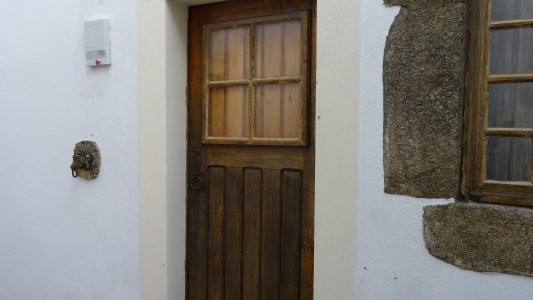
A hitch for a horse. One outside almost every house.
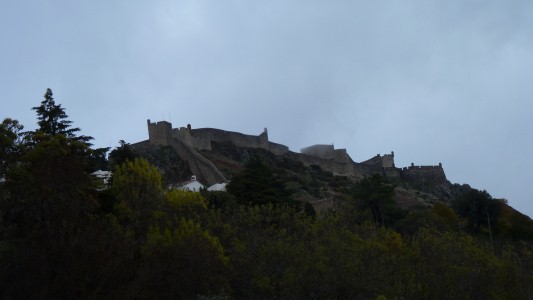
The pictures on the weather forecast said it all. Later in the day the clouds arrived.
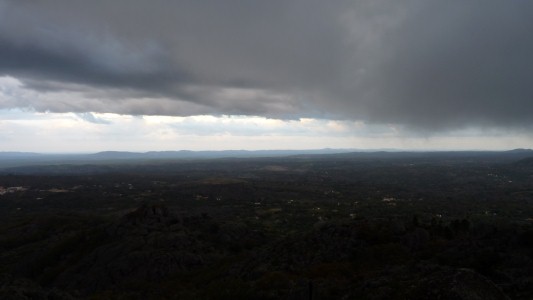
The clouds sort of flowed round the top of the hill, and us.
It started raining a few minutes after this.
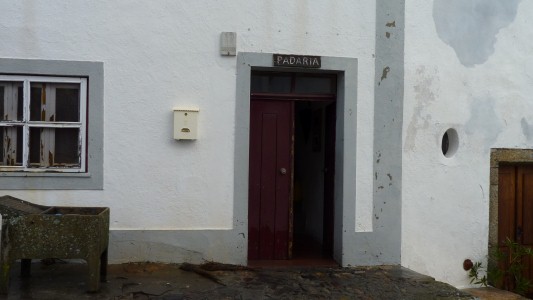
Everyone knows where the bakers is so no need to advertise.
We reckoned the woman who gave us directions sent us the wrong way deliberately so she could get in the queue first - not really, people are friendly and helpful, just that we didn't know we were looking for the Padaria.
After three days here we are regulars.
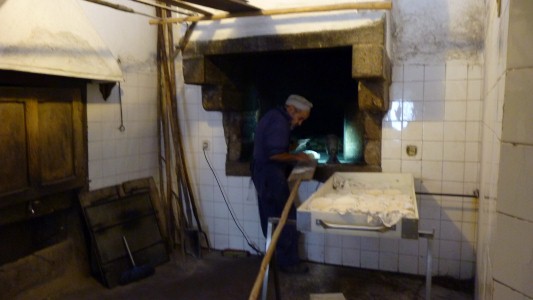
Bread the traditional way.
There's a fire under the oven